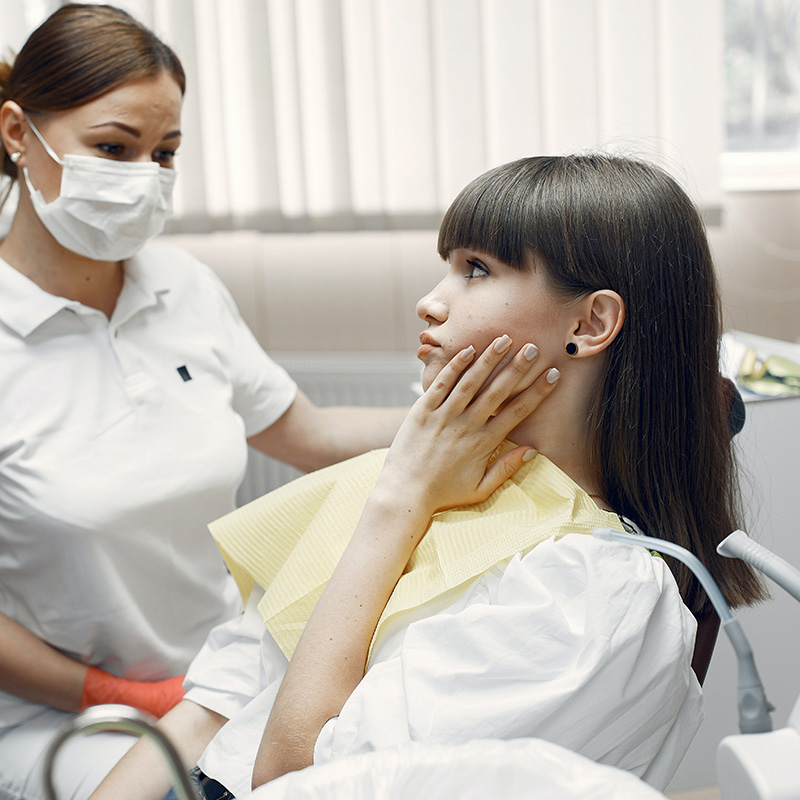Make Dental Work Easier
Bring the best Chinese digital dentistry solution to Africa.
1. It can prevent diseases of the gums
Infrequent cleaning risks periodontal disease, which is an infection of the gum tissue and bone that can shift your teeth and is responsible for adult tooth loss. If diagnosed early, periodontal disease can be treated and reversed. If left untreated, the latter will lead to more serious gum disease. Regular scaling and checkups can effectively prevent gum disease.
2. Can prevent oral cancer
According to the statistics of Oral Cancer Foundation, someone dies of oral cancer every hour in the United States alone. If you wash your teeth frequently to keep them clean, your dentist will also help you to do the test for oral cancer, because the earlier it is detected, the more effective the treatment will be.
3. Helps maintain good health
Recent studies have shown that poor oral hygiene due to infrequent teeth cleaning may induce heart attacks and strokes. Getting your teeth cleaned every 6 months will help keep your teeth and gums healthy and may reduce your risk of heart attack and stroke.
4. Helps maintain good oral hygiene
Having your teeth cleaned will help to ensure that you maintain good oral health in much the same way as a dental check-up. If your dental growth is off track, then a cleaning can help you get back on the right path.
5. Helps detect dental problems earlier
Your dentist will spot any early signs of dental disease, whether it's in your teeth or gums, during a dental cleaning. If cavities are detected early through scaling, the dental disease can easily be cured by breaking the fillings and beds. If you are not in the habit of having your teeth cleaned, then when these problems worsen before treatment, tooth extraction may become the only treatment option.
6. Prevent bad breath
Dental studies have shown that about eighty-five per cent of people who do not clean their teeth suffer from bad breath. Good oral hygiene is an essential first step in preventing bad breath. And dental cleaning is the best way to eliminate bad breath.
Types of Scaling
The main types of scaling are: ultrasonic scaling, sandblasting and polishing.
Ultrasonic scaling is the use of ultrasonic vibration from the ultrasonic scaler to loosen the calculus, and then use the scraper to remove the calculus. Ultrasonic scaling mainly removes calculus.
Ultrasonic scaling is difficult to remove the teeth of the fossa fissure or interstices in the smoke plaque, tea plaque, etc., it is necessary to use sandblasting scaling method. Sandblasting is the use of high-pressure airflow to a solid salt sprayed onto the surface of the teeth to remove stains on the surface of the teeth and crevices, the salt to the mouth to dissolve. Sandblasting is usually done after ultrasonic scaling for dramatic results.
Polishing is the use of a polishing paste to smooth the surface of the teeth, making it more pleasant to the palate and less prone to attaching dirt.
The three types of scaling have different functions, and each person can do all three or just one or two of them depending on his or her situation.
Indications and contraindications for scaling
1. Indications for scaling:
Anyone suffering from gingivitis and periodontitis needs scaling.
2. Contraindications to scaling:
Ultrasonic scaling is contraindicated in patients with pacemakers, blood diseases such as acute leukaemia, aplastic anaemia, acute hepatitis, AIDS. Patients with uncontrolled diabetes, hypertension, acute periodontal abscess.
Precautions after scaling
1. Scaling generally does not affect eating, but due to the structure of the teeth, namely, the neck of the teeth of the bone is very thin, some people will appear after scaling sensitivity, especially tartar the heavier the periodontal inflammation is more pronounced, the more obvious allergic symptoms. The pain of this allergy is secondary, short duration, the pain will disappear after the stimulus is removed, generally do not need to take special treatment, mostly in 1-2 weeks gradually disappear. The more serious cases can be treated with desensitisation.
2. The main thing to do after scaling is self oral hygiene maintenance, such as the use of mouthwash, using the correct method of brushing, flossing, tooth brush, etc., in order to control the formation of plaque.

Copyright © 2024 Golden Promise Dental Co.,Ltd. | All Rights Reserved
We are here to help you! If you close the chatbox, you will automatically receive a response from us via email. Please be sure to leave your contact details so that we can better assist